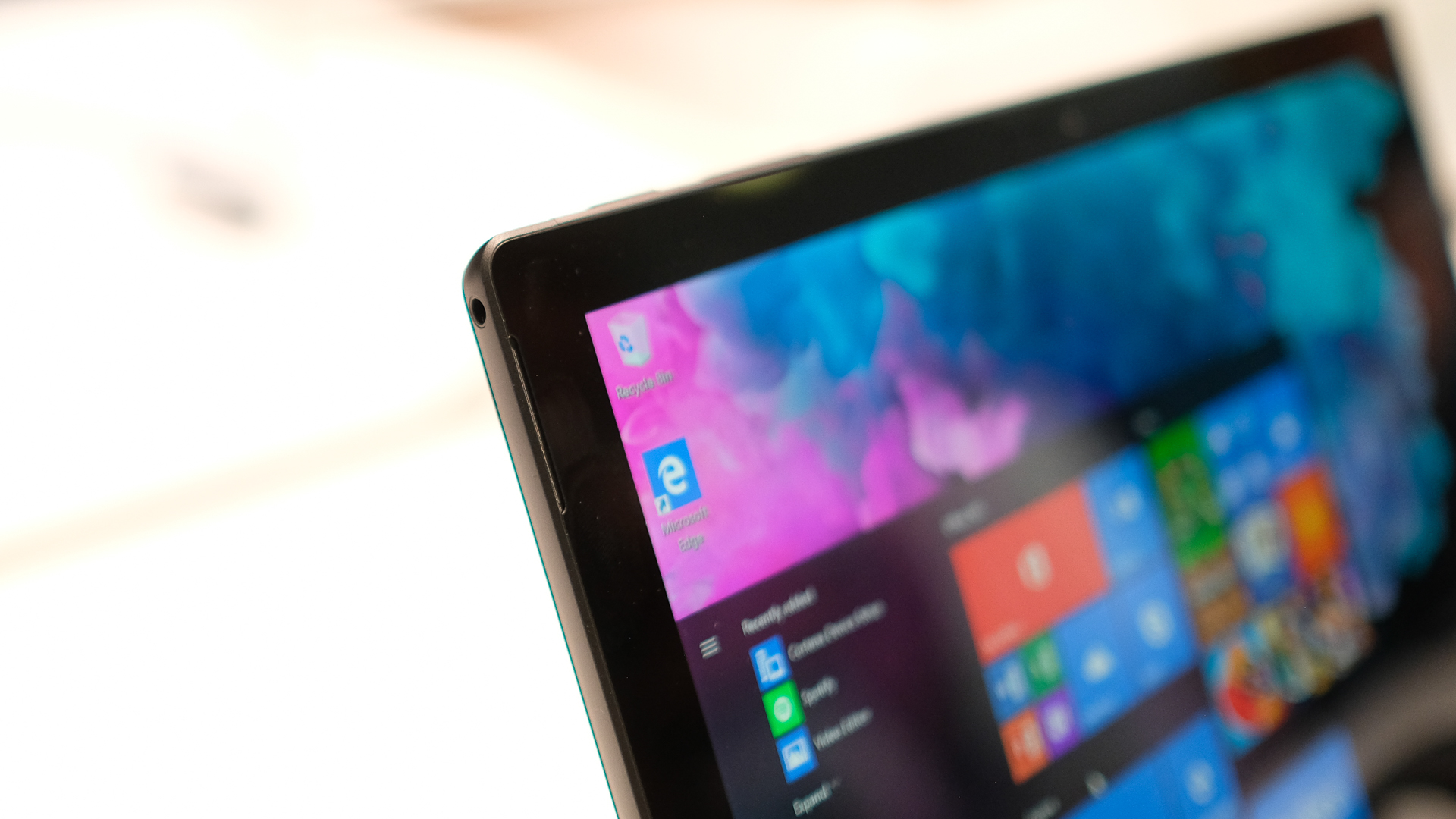Microsoft Surface Centaurus could be a revolutionary dual-screen tablet
Larger device is being prioritized over Microsoft’s Andromeda ‘pocketable’ computer

It seems that Microsoft is working on a dual-screen tablet which will carry the Surface brand, and we could see the 2-in-1 device announced next year.
According to Windows Central, the Surface ‘Centaurus’, as the hardware is currently codenamed, is being developed in conjunction with Intel, and is distinct from the Andromeda dual-screen device that has been previously rumored.
Essentially, the latter concept is of a dual-screen phone or ‘pocketable’ computer, whereas Centaurus will be a much bigger full-sized tablet with two screens (something Microsoft has mulled launching in the distant past in the form of the Courier – almost a decade ago, in fact).
Windows Central claims to have learned about the device from its inside sources, and apparently Microsoft has been working on it (along with Intel) for around a year now, and is hoping to officially reveal Centaurus towards the end of 2019. At this point, though, this is all obviously speculation.
Unsurprisingly, given Intel’s involvement, the chip giant will be providing the processor, and on the software front, the device is expected to run Windows Core OS, a modular operating system which will be adapted and fully tailored to fit a dual-screen device.
Flexible friend
Clearly, flexibility will be the trump card of Centaurus, with the two screens allowing it to be used as a tablet, or indeed two tablets, or a large tablet – with content displayed across both screens – or a laptop with one display being used to play host to a virtual keyboard and trackpad.
The other concept, much as the case with the previous Courier, is to use the device as a kind of digital journal, jotting down notes with a stylus (or performing other inking duties like sketching, for example).
Sign up for breaking news, reviews, opinion, top tech deals, and more.
Windows Central also observes that Windows Core OS will be capable of running legacy Win32 programs, providing they are drawn from the Microsoft Store (or they’re containerized), and that’s why Microsoft has been pushing to get more Win32 apps onto the store in recent times, ahead of the possible launch of Centaurus.
So if Microsoft now appears to be focusing on this dual-screen tablet, what of Andromeda? Well, the more compact and pocketable dual-screen computer/phone concept hasn’t been canned, but it has been put on the back-burner while work progresses on Centaurus.
Software side
Microsoft’s current worry with Andromeda, Windows Central reckons, is that the software side of the equation for the device isn’t ready yet. Its screens will be too small to fully take advantage of the same Win32 apps as Centaurus, so Microsoft needs to ensure there are enough Progressive Web Apps (web-based apps that work just like native applications) and universal apps around to ensure users aren’t disappointed by the lack of software.
This makes sense and it’s something we’ve heard before when the delay of the Andromeda device was rumored earlier this year, with Microsoft driving hard to ensure a good supply of Progressive Web Apps is available, and indeed exploring other potential options as we discussed at the time.
Clearly, Microsoft doesn’t believe the world is yet ready to receive a device like Andromeda, but Centaurus seems to be another matter, and we are keeping our fingers crossed for some interesting developments on this front in 2019.
- These are the best laptops of 2018
Darren is a freelancer writing news and features for TechRadar (and occasionally T3) across a broad range of computing topics including CPUs, GPUs, various other hardware, VPNs, antivirus and more. He has written about tech for the best part of three decades, and writes books in his spare time (his debut novel - 'I Know What You Did Last Supper' - was published by Hachette UK in 2013).